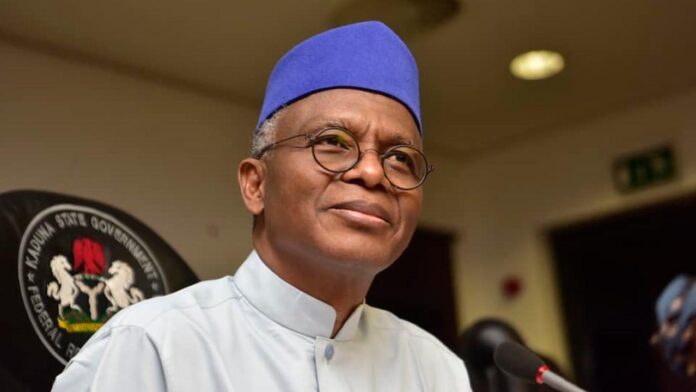Former Kaduna State Governor Nasir El-Rufai is facing increasing political isolation after his high-profile defection to the Social Democratic Party (SDP) failed to gain meaningful support across Nigeria’s North-West region.
El-Rufai, who resigned from the ruling All Progressives Congress (APC) on March 10, 2025, cited a widening disconnect between his personal values and the party’s current trajectory. He vowed to build a united opposition capable of unseating the APC in the 2027 general elections.
“As a member of the SDP, I will focus on persuading other opposition leaders and parties to unite under a common platform to challenge the APC,” El-Rufai declared at the time.
However, two months later, those efforts have yielded little progress. El-Rufai’s attempts to rally support among governors, lawmakers, and other influential figures have met with rejection. The SDP remains structurally absent in all seven North-West states: Jigawa, Kaduna, Kano, Katsina, Kebbi, Sokoto, and Zamfara.
Failed Outreach and Cold Shoulders
Sources reveal that El-Rufai made multiple overtures to key political players, including Senators Adamu Aliero, Yahaya Abdullahi, and Garba Maidoki in Kebbi, as well as the governor of Nasarawa State. All declined his invitation — some opting instead to rejoin the APC.
“Not even a local assembly member was willing to follow him,” a source familiar with the talks said. “His credibility has waned significantly.”
The perception in the North is that the SDP remains closely associated with President Bola Tinubu, who was elected as a senator under the party in 1992. This legacy, combined with suspicions about El-Rufai’s true motives, has raised concerns among potential defectors.
“Many believe his move is either a ruse to split the opposition or that he still maintains ties with Tinubu,” a Kaduna-based political insider noted. “There’s a serious trust deficit.”
At present, the SDP holds just two seats in the National Assembly Senator Godiya Akwashiki and Hon. Abubakar Sarki Dahiru, both from Nasarawa. Apart from them, the most notable person El-Rufai has managed to recruit is comedian MC Tagwaye, widely known for impersonating former President Muhammadu Buhari.
“Convincing a comedian is not political capital,” a source commented. “It underlines how dire the situation is.”
El-Rufai’s fallout with President Tinubu reportedly began when his ministerial nomination was stalled due to an adverse security report a move he viewed as a betrayal. This setback marked the start of his estrangement from the APC power structure.
Additionally, in the South, El-Rufai’s reputation remains deeply damaged by controversial religious rhetoric. During the 2023 elections, he was a vocal proponent of the Muslim-Muslim ticket, brushing off Christian concerns — a stance that continues to draw backlash.
“His image in the South is toxic,” said Adamu Maiyama, an APC chieftain from Kebbi. “He’s seen as divisive and sectarian.”
Amid his dwindling influence, El-Rufai recently met with former Vice President Atiku Abubakar, who encouraged him to return to the People’s Democratic Party (PDP). El-Rufai, however, urged Atiku to consider joining the SDP instead, citing the PDP’s internal turmoil and accusing FCT Minister Nyesom Wike of sabotaging the party.
The conversation reportedly ended without agreement, and El-Rufai remains in limbo — unwilling to return to the APC, unconvincing in the SDP, and hesitant about rejoining the PDP.
“He’s boxed in,” a political source said. “Pushing the SDP feels like flogging a dead horse. But he has few options left.”
What once seemed like a bold leap into leadership of a new opposition front now appears to be a miscalculation. With bridges burned behind him and no clear path ahead, El-Rufai faces a shrinking political horizon and a growing sense of isolation.

